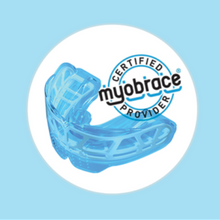Thumb sucking – separating the fact from the fiction

Most kids will suck their thumb at some point, and in young babies and as an occasional comforting act in children younger than three it’s normal, and completely ok. However, some children will develop a continual habit, and this is where thumb sucking can cross over from being cute and adorable into something that can cause problems with tooth and jaw development. With so much discussion on the subject found on social media, in mums’ groups and even from ‘well-meaning’ strangers, we thought it might be useful to dispel some of the common myths and misconceptions about thumb sucking:
· Sucking a thumb doesn’t mean my child has deeper emotional or psychological problems.
Most often a child will suck his / her thumb when seeking comfort, and so if they develop a long-term habit it is recommended to seek help from a counsellor to identify and eradicate any possible underlying problem.
· My child can’t get addicted to sucking his / her thumb.
Research shows that when a child sucks their thumb, the brain releases dopamine, serotonin and endorphins that have the effect of soothing and calming stresses. Over time, a pattern of behaviour develops so that the brain doesn’t even need the chemical response; just the physical act of sucking a thumb creates a ‘reward loop’ that has the same effect. And so a habit is formed.
· Thumb sucking is harmless.
Over time, pressures placed by the thumb on the hard palate and teeth cause changes in jaw alignment that can lead to facial developmental and breathing problems. In turn, these can impact on the quality and quantity of sleep your child receives, which can then manifest into behavioural problems.
What can be done to stop my child sucking his / her thumb?
As we have seen, prolonged thumb sucking in toddlers is generally the result of underlying anxieties and so the best way to stop it is to get to the bottom of what’s causing the issue. You might be able to spot specific triggers (encountering the family dog, going to bed, going to play group etc.) and so you can work with your child to show that these situations are not cause for worry. Sometimes it can be boredom that triggers thumb sucking, and distraction with fidget toys, colouring books or activities can be helpful in reducing reliance on familiar habits here.
Child psychologists and counsellors may be recommended for long-term and persistent cases of thumb sucking, and the KIDS team can offer help and support if this is the case.

How can the long-term effects of thumb sucking be fixed?
Sucking a thumb over a prolonged period of time can cause issues with jaw development that may result in your child’s teeth being misaligned and his / her palate misshaped.
Here at KIDS we use Myobrace, a simple and effective pre-orthodontic treatment worn for 1-2 hours each day and whilst sleeping to correct any issues previously caused by excessive thumb sucking. The custom-fitted Myobrace device works by providing light pressure on the hard palate, gently reshaping it over time. Your child will also be given a personalised programme of Myobrace app-based exercises to encourage correct tongue placement and help the teeth and jaw realign to their natural position. Regular appointments at KIDS help us monitor progress and make any adjustments that may be required to your child’s programme.
The friendly, professional team at KIDS are always happy to answer any questions you may have, and will discuss treatment options tailored exactly to the needs of you and your family.




